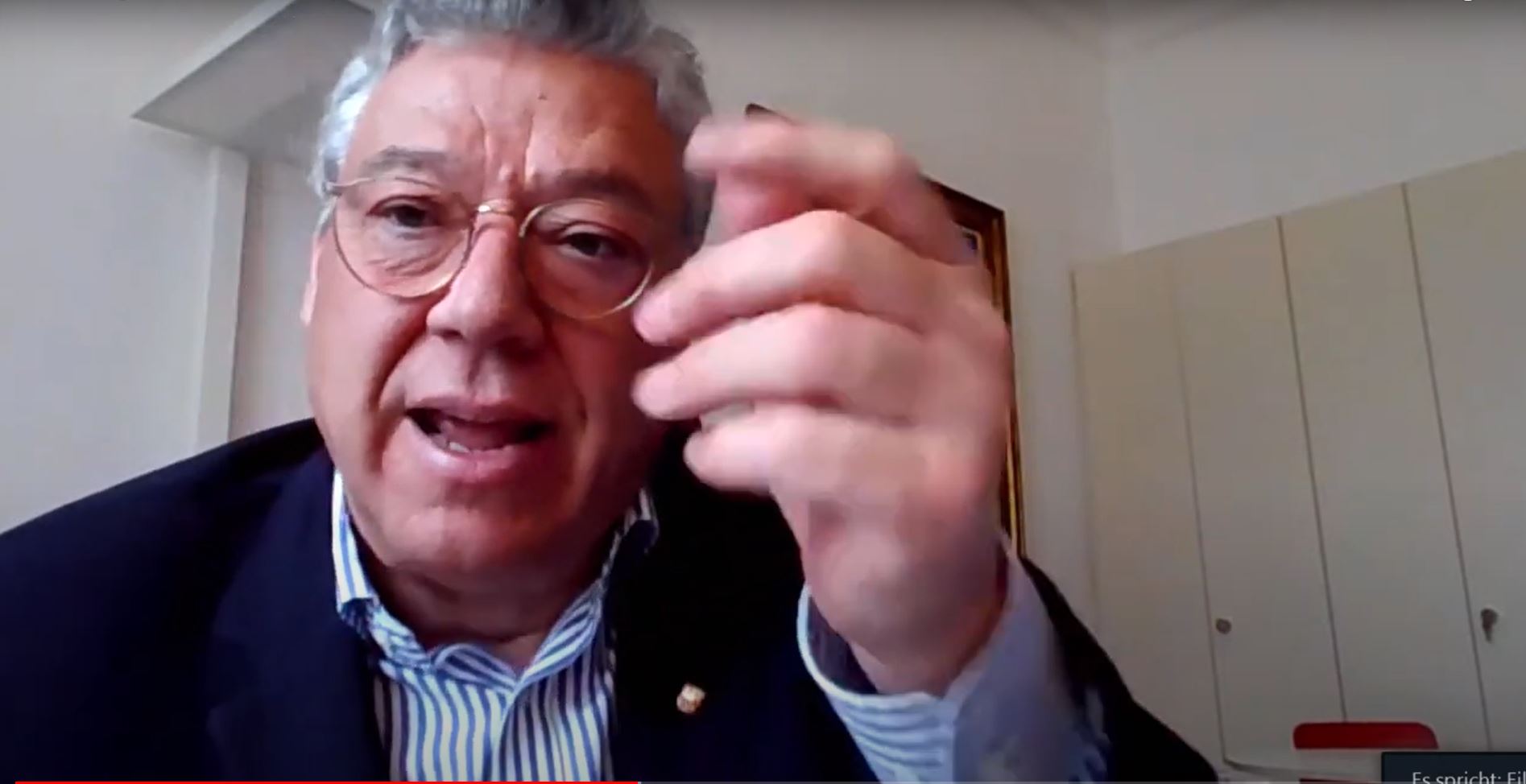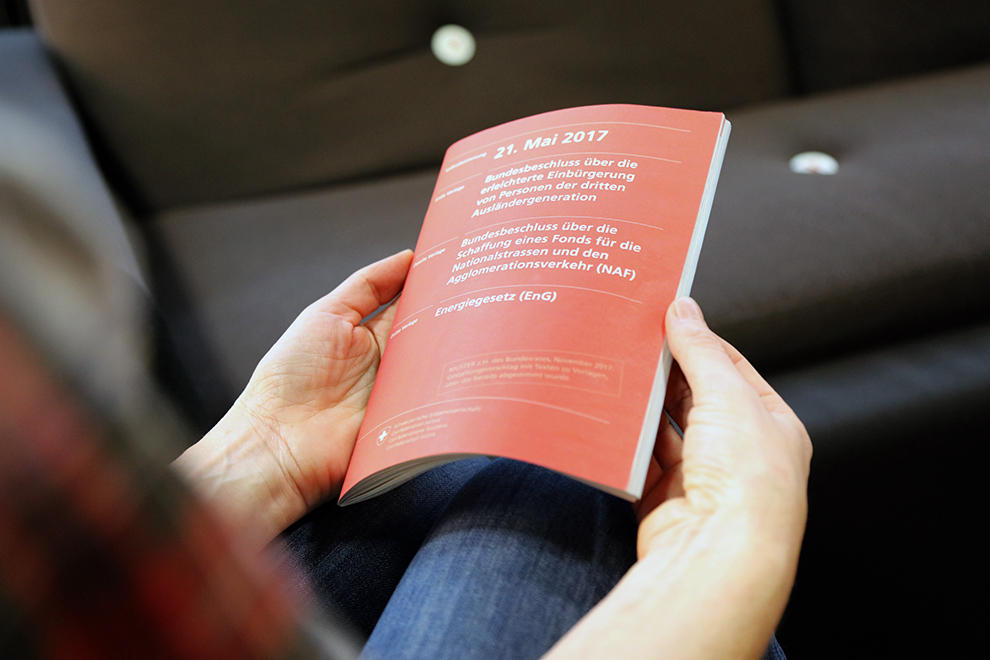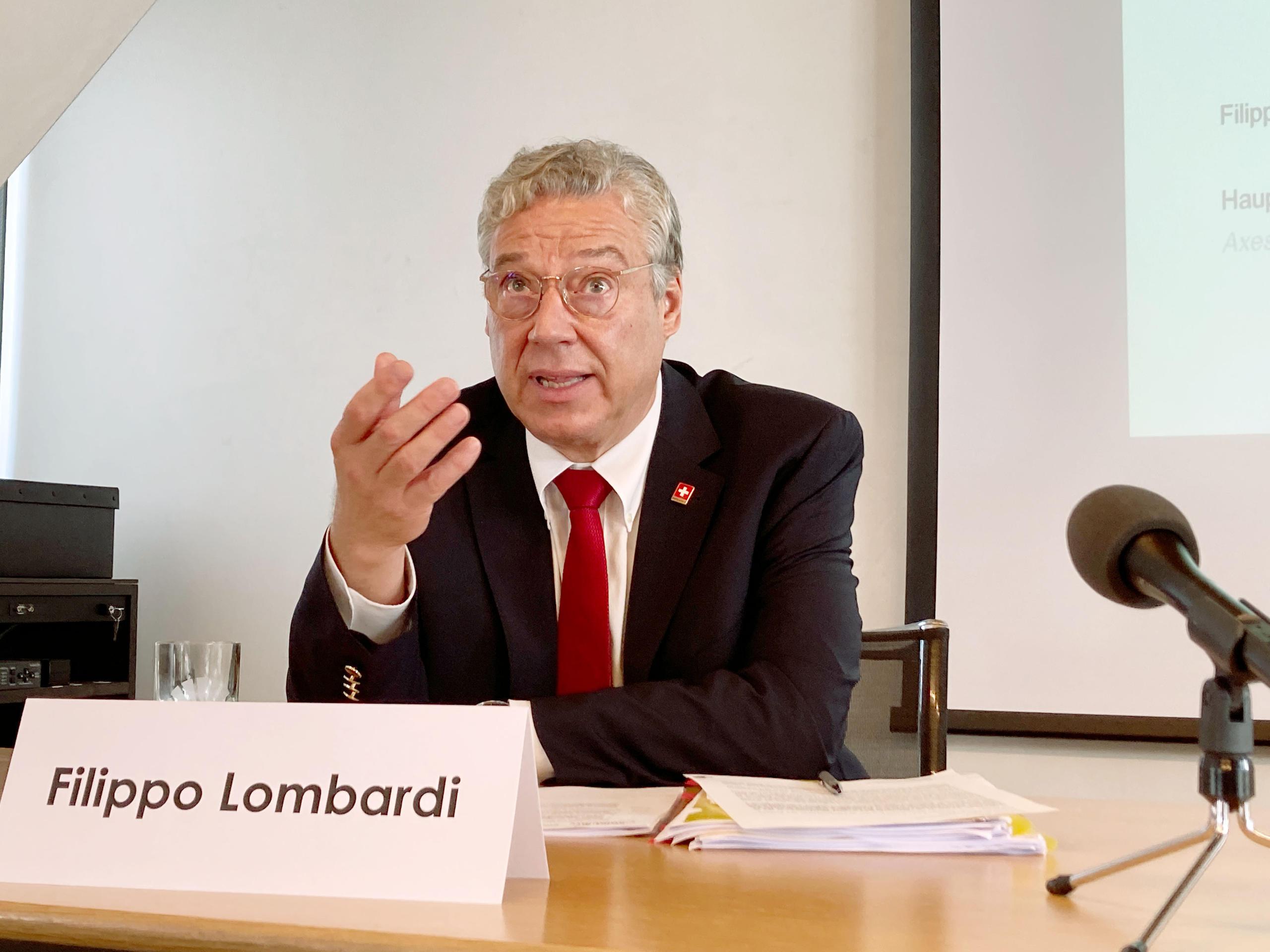Digital banks not yet the solution for Swiss Abroad

Top concerns at last weekend’s online meeting of the Council of the Swiss Abroad were its partnership with digital bank Yapeal, and the war in Ukraine.
For years now, Swiss expatriates have faced seemingly insurmountable problems with Swiss banks. It is increasingly difficult for them to hold an account at a reasonable fee.
Many people, including the Organisation of the Swiss Abroad (OSA), saw the emergence of digital banks as a solution. It therefore signed a partnership with payment service provider Yapeal, a Swiss start-up whose contract with the OSA is worth CHF50,000 ($53,000).
But then there were negative headlines and questions as to whether Yapeal was even financially sound. The OSA demanded information. “We know that the Swiss Financial Markets Supervisory Authority is following Yapeal very closely,” Treasurer Lucas Metzger told the parliament of the “Fifth Switzerland” – as Swiss citizens living abroad are known. “Yapeal is not a bank, it is a payment service provider,” he added. “It is there to pay bills.”
‘You could lose your money’
In theory, the start-up’s offer fulfils a great need for many Swiss abroad, who still have financial obligations in Switzerland.
But there are snags, as became clear at the council meeting on March 12. First of all, according to Metzger, Yapeal only offers its services in Switzerland’s immediate neighbouring countries. Everywhere else, it is currently not available. Moreover, as Metzger pointed out: “It is not a bank that is subject to deposit insurance. So, if the worst comes to the worst, you lose your money.” This is in contrast to conventional banks, which guarantee deposits of up to CHF100,000.
Council member Ivo Dürr said that, according to his personal experience, it is not even possible to transfer money from a foreign account to a Yapeal account. “This actually makes it uninteresting for us,” he concluded.
Getting Swiss citizens out of Ukraine
Concerns also turned to the war in Ukraine after Russia’s invasion. Johannes Matyassy, director of the consular directorate of the Swiss foreign ministry, told the council that Switzerland would soon be opening a branch diplomatic office in Moldova’s capital, Chisinau, after having to close its embassy in Kyiv. To this end, an existing cooperation office will be staffed with diplomats.
The war has forced Switzerland to close its Kyiv embassy, while at the same time neither embassy staff nor Swiss expatriates who wished to leave could be repatriated by plane, he said. The European Union organised a special train. According to Matyassy, 18 Swiss were interested in this organised departure, but only four made it to the railway station.
“The main problem for people is getting from their homes to the station,” he said. “We know of one or two very difficult cases at the moment, of people who want to leave the country but are unable to do so by their own means.”

Speeding up voting paper delivery – but how?
A perennial issue on the OSA’s agenda is that Swiss citizens abroad are often unable to take part in referendums and elections because the ballot papers take too long to arrive in the post. Ever since experiments with e-voting were shelved for security and cost reasons, discussions have continued on how to optimise the existing practice of mailing them.
And here things are starting to move. At the Swiss parliament’s spring session, Radical Party deputy Laurent Wehrli proposed that at least the voting papers could be sent by e-mail. Admittedly, his parliamentary question did not meet with any direct success. The cabinet responded that the “electronic delivery of printable voting documents holds a considerable potential for manipulation and abuse”.
But Wehrli, who is also on the OSA’s executive board, said the federal government also promised in its reply that it would “take a broad and open-minded look at ways to improve the delivery of ballot papers and the casting of votes abroad” before the year was out. Specifically, this means trying to get the documents delivered more quickly to letter boxes around the world by diplomatic courier.
A first trial has taken place and is now being evaluated. A second one is planned.
Working with the cantons
The OSA also hopes that its participation in the Conference of Cantonal Chancellors will help move the issue forward. It is the cantons that handle the dispatch of the ballot papers. “Everything depends on the cantons, so we’re trying to tackle it at the source,” said OSA President Filippo Lombardi. And Director Ariane Rustichelli elaborated: “The OSA wants to propose setting up a working group to the Conference of Cantonal Chancellors to find ways to make delivery of the documents more efficient.”
These efforts will focus on a proposal that SWI swissinfo.ch put up for debate last spring, namely that the voting papers be sent out earlier to Swiss abroad. As things stand, cantons and municipalities are legally not allowed to dispatch the documents earlier than five weeks before the vote, so this timeframe would have to be extended, or at least systematically used. Read more here:

More
Why can’t voting papers be sent to the Swiss Abroad earlier?
Fighting anti-Semitism
The OSA’s initiative for the erection of a Holocaust memorial in Switzerland has also reached fruition. The project went through both parliamentary chambers in the current spring session. It is now up to the federal government to deal with the specifics.
However, the OSA’s longstanding fight against anti-Semitism continues. At the end of the council meeting, the organisation held a vote to give its input in a current political debate. With 69% in favour, it passed a motion stating that: “We would like to ask the cabinet and parliament to make the public use of Nazi symbols a punishable offence.”
Translated from German by Julia Bassam

In compliance with the JTI standards
More: SWI swissinfo.ch certified by the Journalism Trust Initiative












You can find an overview of ongoing debates with our journalists here . Please join us!
If you want to start a conversation about a topic raised in this article or want to report factual errors, email us at english@swissinfo.ch.